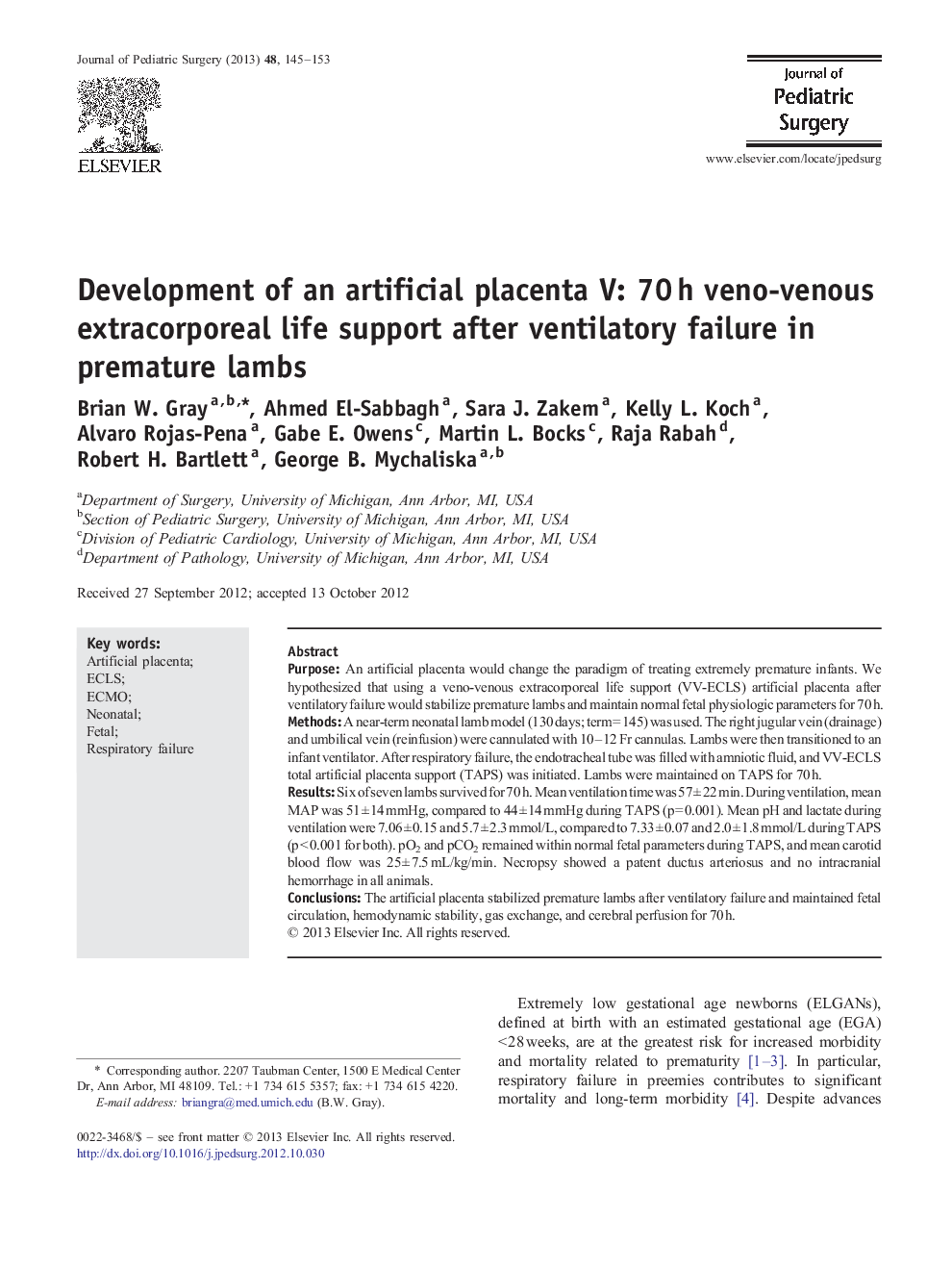| کد مقاله | کد نشریه | سال انتشار | مقاله انگلیسی | نسخه تمام متن |
|---|---|---|---|---|
| 4156329 | 1273771 | 2013 | 9 صفحه PDF | دانلود رایگان |

PurposeAn artificial placenta would change the paradigm of treating extremely premature infants. We hypothesized that using a veno-venous extracorporeal life support (VV-ECLS) artificial placenta after ventilatory failure would stabilize premature lambs and maintain normal fetal physiologic parameters for 70 h.MethodsA near-term neonatal lamb model (130 days; term = 145) was used. The right jugular vein (drainage) and umbilical vein (reinfusion) were cannulated with 10–12 Fr cannulas. Lambs were then transitioned to an infant ventilator. After respiratory failure, the endotracheal tube was filled with amniotic fluid, and VV-ECLS total artificial placenta support (TAPS) was initiated. Lambs were maintained on TAPS for 70 h.ResultsSix of seven lambs survived for 70 h. Mean ventilation time was 57 ± 22 min. During ventilation, mean MAP was 51 ± 14 mmHg, compared to 44 ± 14 mmHg during TAPS (p = 0.001). Mean pH and lactate during ventilation were 7.06 ± 0.15 and 5.7 ± 2.3 mmol/L, compared to 7.33 ± 0.07 and 2.0 ± 1.8 mmol/L during TAPS (p < 0.001 for both). pO2 and pCO2 remained within normal fetal parameters during TAPS, and mean carotid blood flow was 25 ± 7.5 mL/kg/min. Necropsy showed a patent ductus arteriosus and no intracranial hemorrhage in all animals.ConclusionsThe artificial placenta stabilized premature lambs after ventilatory failure and maintained fetal circulation, hemodynamic stability, gas exchange, and cerebral perfusion for 70 h.
Journal: Journal of Pediatric Surgery - Volume 48, Issue 1, January 2013, Pages 145–153